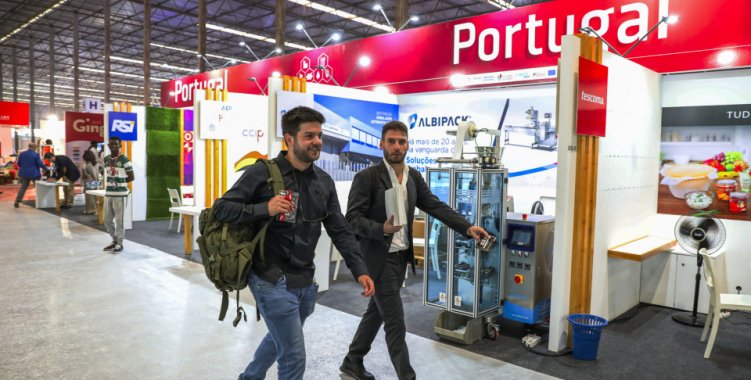Businesspeople from various sectors spoke to Lusa during the visit of the Portuguese Prime Minister, Luís Montenegro, to the Luanda International Fair (FILDA), on his second day of visit to Angola, where he visited the Portuguese pavilion that brings together around 20 national companies sectors such as the food industry, molds and metalworking.
Among these is Grilo, a metal tableware industry in Vila Nova de Gaia, which began selling to Angola in 1988, but is now "practically starting over from scratch", after the pandemic and political changes and in the country's economic and business fabric that brought other 'players' to the market.
"Angola is a natural market, we have to start over", told Lusa José Grilo, managing partner of the company that currently has three customers in the distribution area in Angola, and is still taking "small orders".
Grilo has an average turnover of six million euros, of which around 25 percent comes from exports to various European and African markets, including Angola, Mozambique and Cape Verde.
Payment and credit conditions are the main concerns of those exporting to Angola, highlighted the person responsible for Grilo, who pointed out difficulties in accessing exchange rates and credit insurance.
For José Grilo "exporting SMEs are practically abandoned in Angola – and beyond", challenging AICEP (Agency for Investment and Foreign Trade of Portugal) to play "a more active role".
"There is no support for SMEs in exports", he criticized.
On the other hand, export credit lines do not have an adequate ceiling and are normally attributed to large companies, highlighted the businessman, also questioning the difficulties in accessing the internationalization program for companies with low turnover levels.
Judite Pragosa, administrator of Procadimoldes, a technical mold company for plastic injection in Marinha Grande that currently exports to Morocco, Nigeria and several European countries, came to FILDA "looking for opportunities" in Angola.
"We have had difficulties in direct contact with the plastic injection industry, which are our customers, but there is a market", said the person in charge, explaining that the objective at the fair is precisely to present the company and find partners.
The company has been in existence for 30 years, has 50 employees and an annual turnover of 4.5 million euros.
Judite Pragosa says that the executive led by Montenegro needs to get "the institutions working", complaining of difficulties in approval and delays in responding to investment and internationalization projects.
"SMEs have many difficulties in accessing these projects", she lamented, adding that when the decisions are known, sometimes, "the reason for applying is already outdated".
More practical, more targeted and faster applications are some of the suggestions made by Judite Pragosa, who said she recently had a project approved, which did not move forward, because "after all, there was no funding".
The Portuguese government should rethink "the way it helps companies", reinforced the technical director of Procadimoldes, Carlos José, saying that funds do not always reach the industry in the most correct way.
Sebastião Gama, from Lactoserra, a producer who has been selling Aguiar da Beira cheeses to Angolan hypermarket chains for around two years, still sells "in small volumes", as the company has been mainly targeting countries in the "saudade market" in Europe, the United States of America and Canada.
He highlighted that the "good relations and exchange between Portugal and Angola" facilitate access to the market and with an annual turnover of 15 million euros he believes that the company will continue to grow.
Regarding the arrival of the Portuguese Prime Minister to Angola, he considered that it is also important for the institutional aspect: "It cannot just be about paying attention to financial support, institutional support is also important".
Luís Montenegro visited several of the companies in the Portugal pavilion and closed, this Wednesday, the Angola-Portugal Economic Forum, under the theme of Food Security.







